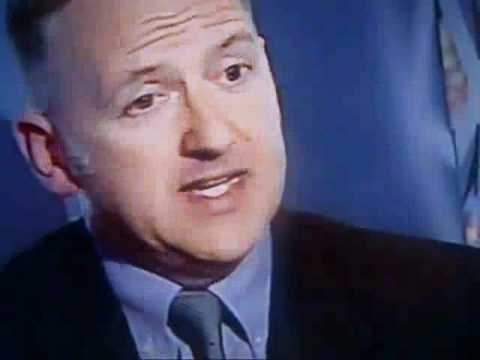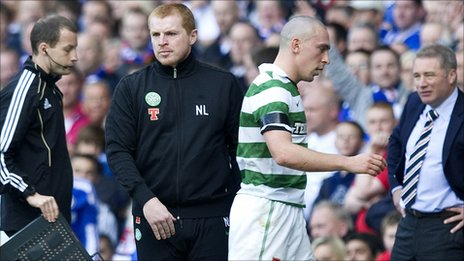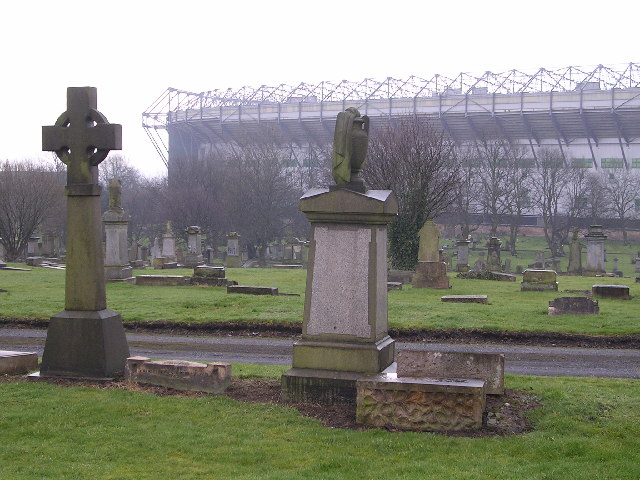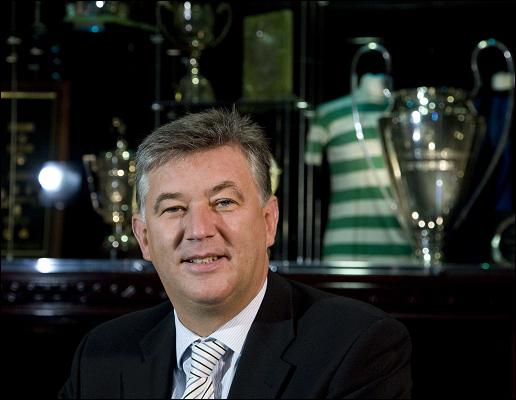6th July 2011
Herald Scotland
CRAIG Whyte, the new owner of Rangers, has launched a robust fightback against the football club’s critics on sectarianism, making clear that it will “not be made the whipping boys for society’s failings”.
Mr Whyte has tasked his friend Jack Irvine, executive chairman of Media House International, to spearhead a “more aggressive” response to Rangers’ critics within and outwith the political world.
Mr Irvine said: “What we won’t be is knocked around by knee-jerk politicians and by others across the city. We’re drawing a line in the sand. Sectarianism is a problem but not the sole problem of Rangers Football Club.”
http://www.heraldscotland.com/news/politics/rangers-we-will-not-be-blamed-for-sectarianism-1.1110440
Now this “more aggressive” policy was not decided on Tuesday the 5th July over succulent lamb (or more likely mutton stew since Sir David Murray left), no it will have had its genesis during part of the long period of due diligence that led up to the Rangers takeover on the 6th of May, further fuelled by their anger at receiving punishment from UEFA at the end of April for their supports behaviour in UEFA competition.
20th March 2011
Thus when many thousands Ranger’s supporters were heard to sing the sectarian “The Billy Boys” and racist/illegal “The Famine Song” at the league cup final, not only were they not aggressively chastised, they were rather aggressively applauded by Justice Secretary Kenny MacAskill after the Co-operative Insurance Cup Final on 20th March 2011. Ok he applauded both sets of fans which saved him aggressively condemning one set which, to his credit, Graham Spiers of the Times was prepared to do when he claimed Rangers supporters had gone back ten years with their repertoire at Hampden and had undone much previous good work which the club itself had done. He tweeted that Rangers are “Unarguably the most socially-backward fans in British football”
This lack of any mention of songs that were clearly unlawful being sung during the broadcast prompted a number of supporters to complain to the BBC about no mention being made to something that was a clear demonstration of the size of the sectarian problem that is of Glasgow Ranger’s own making.
In response to these complaints the BBC replied
Dear Mr ****
Reference XXXXX
Thank you for your further email regarding the CIS Cup Final broadcast on 20 March 2011. Your comments were passed to the Editor, TV Sport, BBC Scotland who asked that I forward his response as follows:
“Thank you for your email about Sportscene. It is not and has never been custom and practice for our commentators to offer opinions on chants from the crowd. They are there to describe the game. Also, whilst commentating they are wearing headphones and listening to the director’s voice in their ear, so I would be surprised if they could accurately make out crowd chants in any case.”
If you remain unhappy with BBC Scotland’s reporting on the issues you raise and, if you believe a serious and specific breach of the BBC’s Editorial Guidelines has occurred here, you may wish to pursue this complaint further, by contacting the BBC’s Editorial Complaints Unit, within 20 working days and they will carry out an independent investigation.
You can write to them at the following address:
Editorial Complaints Unit
BBC
Room 5168
White City
201 Wood Lane
London
W12 7T
Alternatively you can email the Unit at the address: ecu@bbc.co.uk, but please note that complaints submitted via email must include a postal address, as ECU findings are sent by letter.
Whether or not you choose to pursue your complaint with the ECU please be assured your further concerns have been registered
Thanks again for taking the time to contact us.
Note that it was not BBC Scotland’s policy for commentators to offer opinions on chants from the crowd. The context suggests match commentators but I have never heard any comment from any BBC personnel on this issue in front of the viewing public, so it is reasonable to assume that the policy of not commenting or drawing attention to the issue, as Maclean and Nevin had done, applied across the BBC commenting spectrum.
Saturday 21st May
Fast Forward to the Scottish Cup Final when this came from the studio commentators Rob Maclean and Pat Nevin:
Rob Maclean
I’d love to go through a football show without mentioning the word sectarian but I feel we have to at half time because those outside who can hear the songs being sung tell me that the Celtic supporters have been singing some sectarian songs during the first half despite Celtic going very public with their intimation that they wanted it completely stamped out. Lots of publicity for Rangers, punishment for Rangers from UEFA as well, it seems as if it’s happening outside from the Celtic supporters, Pat.
Pat Nevin
I’ve actually had a few Celtic supporters during the week…I was very strong for mentioning it last week as well and I’ve had a few fans saying “Oh they’re worse than us”. Forget about that. If you sing those sort of songs at a football ground, do you know what? I’m going to mention it every time I hear it and I don’t care if it’s Celtic or Rangers or Hearts or Hibs or anyone. I will mention it and let’s embarrass those teams. I was only slightly disappointed that there will be some who will sing it. It’s up to others, good fans, to boo them out to drown them out and maybe it’s up to the police to go in and have a little word or two as well. But they’re not listening to their club but their club are saying the right thing.
These statements prompted another series of complaints to the BBC that received the standard “nothing to see here Timmy” response from BBC Scotland. However, undeterred, enough tenacious supporters took their complaint to the next level writing to the BBC Editorial Complaints Unit in London (the same unit previous complainers on the lack of BBC comment at the Coop Cup Final were directed to).
THE ECU received several dozen complaints and took the step of amalgamating the various issues in the complaints into three groups:
- That the programme inaccurately described songs as sectarian which were not in fact sectarian;
- That in doing so, the programme was unfair to Celtic supporters who were said to be singing sectarian songs when this was not so;
- And that the programme was lacking in impartiality by focussing upon allegations of sectarian behaviour by Celtic fans and failing to mention recent events which involved allegations of sectarian behaviour by supporters of Glasgow Rangers.
And the ECU then proceeded to comment under those headings. However in the interest of making joining the dots easier I have put those comments at the end of this article although the one on what is a sectarian song is worthy of pride of place in the energy sapping songs debate – maybe even why the comment was made?
What the BBC ECU did not include in their response was an answer to the following obvious questions (when you clear away the smoke and mirrors) and that is:
- who in the BBC,
- at what level and (crucially)
- why,
decided that the BBC policy applied at the Cooperative League Cup Final would no longer apply and sanctioned the statements that drew attention to, as it turned out, one song sung by an unknown number of supporters but certainly not large by comparison to the League Cup final, that the BBC then deemed to be sectarian on the arguable grounds set out in the ECU response further on.
What the BBC ECU did do however was supply the name (Mr Ian Small) at BBC Scotland to whom these questions should be addressed and the matter is being pursued with him by at least one if not more determined Celtic supporters. The club are also aware of the issue but are taking the “behind the scenes” approach that served them well in the conflict with the SFA although some indication of progress would be useful.
In the context of joining the dots the most important question is why did the BBC policy change between the two finals so that Pat Nevin not only commented upon the matter but did so aggressively?
Following from that who was involved in the discussions at the BBC to change policy and what (or who) prompted those discussions to take place?
This looks like a clear attempt to slur Celtic supporters on national television not long after Rangers had been punished by UEFA on the say so of FARE (who were not across the city in spite of some attempts at linkage) This pointing the finger at them was something Rangers were clearly not happy about, something it would be quite natural to respond aggressively to.
Celtic supporters need an explanation from the BBC that might require an accompanying apology depending on what is revealed and Celtic as a club and business need to be satisfied that the good name of the club is not coming under attack as a result of Rangers more aggressive policy stated on the 6th of July. There is a very thin line between aggressive defence and actual attack.
The BBC Responses to the Three Issues they identified from letters.
There is much to debate here so fill your boots but intentionally or not they do deflect from the key issue of why the change of policy.
“The first thing to establish is exactly what songs were heard and were being referred to as “sectarian”. Many complainants have assumed that the reference had to be to “The Boys of the Old Brigade” and “The Soldier’s Song”, both of which were being sung. BBC Scotland has now clarified that, in fact, only one song was being specifically referred to and that was “The Boys of the Old Brigade”. The message that there had been sectarian singing, which was passed to the studio, was evidently paraphrased inaccurately and understood to refer to more than one song. It does not seem to me, however, that this inaccuracy is particularly significant – the key issue concerning both accuracy and fairness is whether there was sectarian singing at all, not how many sectarian songs may have been sung.
This particular song, in its original form at least, commemorates the Irish War of Independence and many complainants have argued that, even though it is nominally a pro-IRA song, it is no more than a folk song expressing historical and national pride. These complainants, and others, have taken the view that the word “sectarian” necessarily connotes religious rivalry or bigotry and that as this particular song contains no such references it cannot be considered sectarian. I have to say that I do not share that view.
Firstly, I am afraid I cannot agree that there is any agreed definition of the word that limits its scope to exclusively religious factors and I do not believe that in its common usage it is so restricted. It is commonly used to refer to divisions other than religious divisions, such as those between rival political groups. I note that the Scottish anti-sectarian charity, Nil By Mouth, believes that sectarianism can have a political as well as a religious basis, and that “As society becomes increasingly secular, the term is often also used to describe a type of social identity, that is about things other than a particular set of religious beliefs
Secondly, and in the absence of a settled definition, it seems to me that it is reasonable to use it to refer to the web of inter-communal tensions in parts of Scotland in which both religion and politics form major parts. I also note that Strathclyde Police too appear to have adopted a broad definition of sectarian, when recently describing songs which might result in arrest if sung at football matches. They have clearly taken the view that the singing of “The Boys Of The Old Brigade”, at least in some contexts, may be construed as sectarian, and overall, I tend to agree. It seems to me that this song is a clear expression of the political dimension of the inter-communal divisions of western Scotland and so, if sung at a football match where it might be expected to give offence to others, can reasonably be described as sectarian. For this reason I am afraid that I do not feel able to uphold the complaint that to describe this song as sectarian was inaccurate. I might add that we would apply the same criteria to songs sung by fans of other clubs.
It follows from that that I cannot uphold the consequential complaint that, if the description of the song was inaccurate, it was unfair to describe Celtic fans as having been singing sectarian songs. In this respect, however, I would add the observation that while the original form of the song has a purely historical reference, this is not always so when it is sung by Celtic fans some of whom have been known to augment it by the addition of the words “Provisional Wing” after the line “I joined the IRA” which concludes the first verse. This addition, I believe, transforms the song into something even more clearly sectarian and contemporary; and whilst it has not proved possible to determine if this version was sung at the Cup Final itself, footage of Celtic fans on the internet seems to indicate that this is a common enough rendition. The fact that it is sung this way, by some Celtic fans at least, tends to further undermine the claim that it is unfair to accuse Celtic fans per se of singing sectarian songs.
I think it is also worthy of note that some Celtic fans, expressing their views on fans’ web sites, do concede that, in the context of football matches at least, this song (with and without what are sometimes described as “the add-ons”) does have the potential to give offence to others of rival persuasions. There are Celtic fans who believe that the singing of this particular song at football matches should end.
The final issue of complaint is that by focussing on allegations of sectarian singing by Celtic supporters the programme displayed a lack of due impartiality. I think two points are important here. Firstly, it can be seen from the transcript I have included above that there was a clear reference to sectarian singing by Rangers fans and to the fact that Rangers had been punished by UEFA. Pat Nevin also made it clear that from his perspective it did not matter which group of supporters were singing, only that they were, and that he would criticise any fans equally, including Rangers fans, for such activity. Secondly, at an earlier point in the programme, and before the match had actually kicked-off, there was a studio discussion about the difficulties which Neil Lennon had faced during the season where strong sympathy and support for Lennon was expressed. That, it seems to me, strongly undermines the argument that an anti-Celtic agenda could be discerned in the programme. I am afraid that I do not feel there is sufficient basis for upholding this part of the complaint. “





